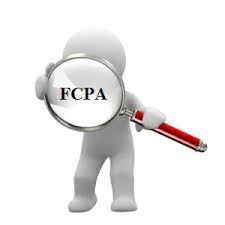The Real Explanation for the Record Year for FCPA Enforcement
 I am not an “I told you so” person – frankly, it is a very unattractive character trait. I am more comfortable with the old adage – even a broken clock is correct twice a day. I fall into that category.
I am not an “I told you so” person – frankly, it is a very unattractive character trait. I am more comfortable with the old adage – even a broken clock is correct twice a day. I fall into that category.
All the FCPA prognosticators, predictors and paparazzi have missed the boat on understanding what happened this year – 2016, to make this a record year in FCPA enforcement. As a former public servant for over 20 years, I am very familiar with the inner workings of the government, how it operates, how things can change. Much of the government is set in stone and no matter who is in power, it is very difficult to change.
Over the last decade we have seen a number of trends in FCPA enforcement. The Justice Department has forged new and important relationships with global partners. DOJ has consistently articulated a mission to defeat corruption, wherever and whatever form it takes. No one can defend corrupt schemes and no one even tries to push back against the government’s initiative.
As part of this bipartisan, collective initiative in the government, and most especially at DOJ, the government has allocated more resources to the FCPA Unit in DOJ and more prosecutors have been assisting from the US Attorneys Offices. Add to that the rapid increase in FBI resources with the creation of three separate squads dedicated to fighting corruption, and that is why we are now standing at the finish of a record-setting year in FCPA enforcement.
I have always explained that when resources are allocated in the government for a specific purpose then the result is bound to happen. Why? The FBI agent, DOJ prosecutors, and AUSAs have to justify their existence and their assignment. FBI squads are measured by their performance – cases, impact and overall accomplishments. DOJ prosecutors build their own success stories by the cases they bring, the accomplishments they achieve, and the ultimate success of the FCPA Unit, as reflected in the numbers that are recorded.
In the new administration you will be able to understand its priorities by the movement of resources. More prosecutors to terrorism cases will result in more cases being brought. We are unlikely to see any change in resources allocated to the FCPA Unit and, for that reason, the number of cases is likely to continue at a high rate like 2016.
Similarly, when the FBI modifies its allocation of resources, you will see changes in the number of cases ultimately brought by DOJ. Government prosecutors work closely with the FBI to build cases, to gather records, conduct undercover operations, interview witnesses, and charge companies and individuals. In the FCPA context, we are witnessing the fruits of many years of hard work by prosecutors and FBI agents. There is no reason to think that 2017 will be any different from 2016 in terms of FCPA cases.
 Case numbers can go up and down each year depending on the number of cases in the pipeline and where they are in the prosecution stages. 2015 was an anomaly because of specific directives from DOJ’s criminal division to refine the prosecution of FCPA cases, resulting in the adoption of the FCPA Pilot Program.
Case numbers can go up and down each year depending on the number of cases in the pipeline and where they are in the prosecution stages. 2015 was an anomaly because of specific directives from DOJ’s criminal division to refine the prosecution of FCPA cases, resulting in the adoption of the FCPA Pilot Program.
As we move forward, I see more changes on the horizon. Most especially in the area of government expectations of companies relating to ethics and compliance programs. Companies should take heed of this trend and redouble their efforts when it comes to compliance. The list of basic requirements for an effective compliance program has evolved and will continue to do so. I will outline these changing expectations in future postings. For now, CCOs have to be mindful of the new era of FCPA enforcement and the need to mitigate enforcement risks by implementing an effective ethics and compliance program.
















Foreign corruption, while getting the spotlight with the DOL enforcement efforts in 2016, is not the only corruption issue. Equally significant are the past and present corrupt practices within our borders. I hope the new administration will focus not only on foreign corruption, but also local corruption issues that impact the American investor to a much greater degree. It is time that institutional fraudsters from the 2008 financial fiasco pay their dues, including prison time for yet to be convicted CEO criminals.